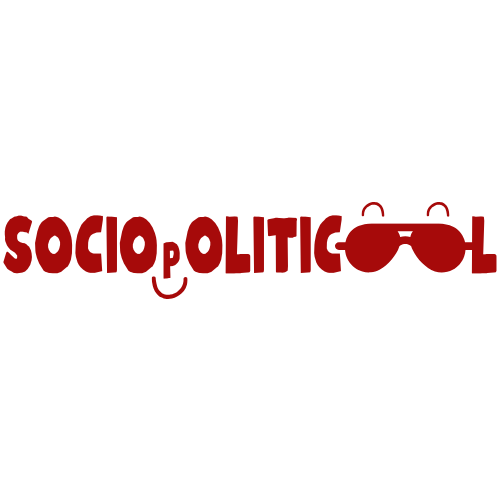What is sociology? Basically, it is about society and everything in it, including institutions, cultures, and the categories we place ourselves in.
It may mention something from the past, but it doesn’t delve into the historical events that shaped it. That is for anthropologists to find out.
Anthropology studies humans across all cultures and times, so it involves history and archaeology.
It studies society at present and uses the insights gathered to understand the behaviors of those who are within that society.
So, sociologists ask questions like, “Why are people in this area behaving in a certain way, and differently from another area?”
Sociology Is the Study of Society
“Sociology” comes from two root words: socius, meaning “companion” or “being with others,” and logos, meaning “study” or “discourse.”
So, it literally means “the study of companionship.”
It is about analyzing the social ties that bind us, the structures we operate within, and the forces that influence our actions, beliefs, and identities.
What Is Considered a Society?
A society refers to a group of people with shared beliefs, values, norms, institutions, and relationships.
It could be a country, a local community, or a digital space where people with common interests interact with each other.

Sociology vs. Psychology
Sociology and psychology both deal with people, but they approach human behavior from different angles.
Psychology focuses on what is happening inside the mind. So, thoughts, feelings, and individual mental processes.
Sociology is outward-looking. It is concerned with group behavior, societal patterns, and external influences like culture and social class.
Psychology is more popular than sociology because people want to understand and fix personal problems more.
Let us take anxiety as an example.
A psychologist may look at one’s biological makeup to understand why they are anxious. A sociologist, on the other hand, would look at how job insecurity, media, or peer pressure create anxiety in them.
Both fields overlap at times, especially in areas like social psychology. However, sociology always emphasizes the collective aspects of human life.
Subjects Being Studied in Sociology
Sociology is a collection of interconnected subjects that all relate to how we live together and shape each other’s lives.
Below are some of the major areas sociologists explore.
Socialization
Socialization is the lifelong process through which we learn the norms, values, behaviors, and roles expected by society.
It starts in childhood with our families and continues through school, work, media, and friendships.
Cultures
Culture includes language, beliefs, art, food, fashion, and everything else that defines our way of life. It is what gives a society an identity.
Social Identities
Social identities refer to the categories we place ourselves in, such as race, gender, class, religion, or nationality.
They shape how we see the world and how others treat us.

Social Structures
Social structures are the “invisible frameworks” that organize our lives, including family, government, economy, and education.
Social Groups
Our families, social circles, communities, and even online fandoms have impacts on our beliefs, behaviors, and identities.
Sociologists examine how we relate to our group and those outside our group, which can explain social cohesion or division.
Deviance
Deviance refers to behaviors that go against societal norms, like crimes.
It is not always bad, though. It can challenge unjust rules and lead to social change, as it is sometimes rooted in inequality.
Most Popular Sociological Theories
Sociologists use theories to understand how society works. Learn about the three key theoretical perspectives in sociology below.
Conflict Theory
Conflict theory sees society as a battleground of competing interests. It emphasizes inequality, especially between social classes.
Conflict theory builds on Karl Marx’s ideas by analyzing how power and economic systems create social inequality.
The main argument is that the wealthy and powerful shape society to benefit themselves, often at the expense of the poor.
Structural Functionalism
Structural functionalism views society as a well-oiled machine where every part works together to maintain social order.
Each institution serves a purpose. When one fails, the whole system is affected. It could make the society unstable.
Symbolic Interactionism
Symbolic interactionism zooms in on everyday interactions. It explores how people create and interpret symbols.
Symbols here refer to language, gestures, and social status, not just the actual symbols that represent something.
Famous Sociologists Across the Globe
These thinkers helped shape sociology into the discipline it is today. Their ideas continue to influence how we study and understand society.
Auguste Comte
Auguste Comte is the Father of Sociology. He believed society could be studied scientifically, and he called it “sociology.”
He also introduced the idea of positivism, which is the belief that knowledge should be based on observable facts and data, not speculation.

Émile Durkheim
Émile Durkheim studied religion, education, and even suicide to show that societal forces deeply influence individual behavior.
He introduced concepts such as “social facts” and “anomie,” and emphasized the importance of collective norms.
Sociology was established as a formal academic discipline because of him.
Karl Marx
Karl Marx was all about class struggle. He believed that capitalism creates inequality, and he predicted a worker-led revolution.
His ideas laid the foundation for conflict theory and still influence discussions about power and justice today.
Max Weber
Max Weber added depth to Karl Marx’s ideas by introducing a multidimensional view of stratification, which included status and power.
Social stratification means society divides people into unequal groups with different access to resources and opportunities.
He introduced the concepts of bureaucracy, rationalization, and Verstehen (empathetic understanding) in sociology.
Michel Foucault
Michel Foucault explored how power operates not just through laws or rulers, but through institutions like prisons, schools, and hospitals.
He examined how knowledge is used to control people, making us question what we consider “normal” or “truth.”
Harriet Martineau
Often overlooked, Harriet Martineau was one of the first female sociologists.
She wrote about gender, race, and class, and translated Auguste Comte’s work into English. She was an early voice in feminist sociology.

Sociology Helps Us Understand Society and Ourselves
Our personal experiences are shaped by broader social forces we have no control over, such as culture, economy, politics, and history.
This is why I like sociology. Whenever I try to understand why others do what they do, I look at their environments and life circumstances.
Many of our actions and behaviors, especially the bad ones, are caused by our experiences, not our nature.
I agree with Jean-Jacques Rousseau that people are born good, so I always give the benefit of the doubt and offer compassion.











